Best Cars to Tow Behind a Motorhome
- Latch.it

- Dec 11, 2023
- 9 min read
Taking a towed vehicle with you on your RV adventures offers flexibility and convenience. Here is a list of the best toads for your motorhome.
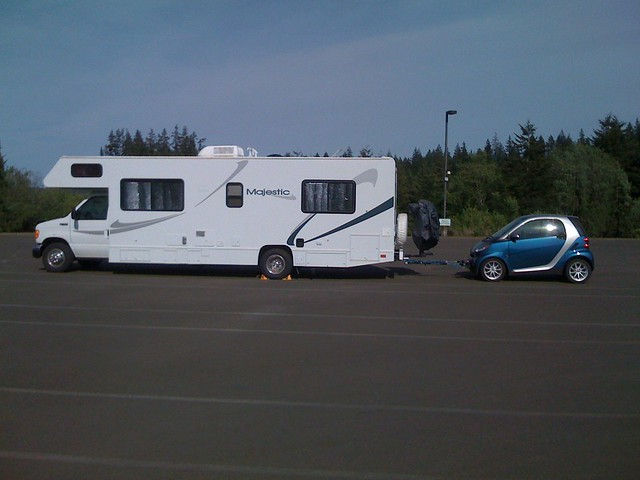
Embarking on a motorhome adventure opens up a world of exploration, but choosing the right car to tow along can be a game-changer for your travel experience. The quest for the ideal four-wheeled companion is crucial for seamless road trips, offering convenience, versatility, and ease of towing.
Choosing the best car to tow behind your rig can make or break the road trip experience. From compact versatility to smooth towing capability, the hunt for the ideal four-wheeled sidekick is an important one! In this guide, we'll navigate the top contenders for towing along with you on your adventures as well as guide you on different aspects of how to tow a car behind an RV. So, let's dive into the top picks and find your perfect road trip companion!
Why Do RVers Tow A Car Behind Their Motorhome?
Towing a car behind an RV has become a common sight on highways and at campgrounds. It serves several purposes, all rooted in offering RVers both the comfort of a home on the road and the flexibility of exploring easily. When RVers reach their destination or campground, they may want to explore the local area without having to break camp. Having a separate vehicle allows them to easily travel short distances for sightseeing, grocery shopping, or even just running errands. Not only that, RVs are generally less fuel-efficient than smaller vehicles. Towing a smaller car for local travel allows RVers to use a more fuel-efficient vehicle for short trips, saving on fuel costs.
Of course, you can’t forget the size of an RV! These campers can be challenging to maneuver in tight spaces or urban environments. Many RV parks and campgrounds also have limited space, making it inconvenient to use a large RV for local exploration. A smaller towed vehicle, on the other hand, provides greater flexibility for navigating through congested areas, parking, and exploring places where the RV might be impractical. It can also save you the cost of renting a vehicle at your tourist destination, as you will have your familiar vehicle with you to drive around.
How To Tow a Car Behind Your RV?
So, how exactly do you tow a car behind your RV? First things first, selecting the right towing method is crucial. One popular approach is flat-towing: at its core, a flat-tow system involves a few key components working in harmony. First off, a sturdy tow bar connects your motorhome to the towed car, acting as the lifeline between the two vehicles. Supplementing this setup are safety cables, ensuring an extra layer of security in case of unexpected detaches.
Additionally, a baseplate—installed onto the towed vehicle—provides a secure attachment point for the tow bar, allowing for a stable and safe towing experience. The simplicity and ease of this system make towing a car behind an RV convenient without compromising on the thrill of the open road.
Alternatively, if flat-towing doesn’t suit your needs, a dolly or trailer could be your go-to option. Dollies hoist the front wheels of the towed vehicle off the ground, while trailers carry the entire car elevated above the road surface. Both methods necessitate careful loading and secure fastening to ensure a smooth and safe journey. Whichever method you opt for, it's vital to double-check all connections, lights, and safety measures before hitting the road.
You can have a complete read of this guide to know all the nitty gritty details of learning how to tow your car behind your RV. Mastering the art of towing transforms your RV into a mobile command center, allowing you to explore far and wide with your trusty wheels in tow.
Does Towing a Car Behind an RV Damage it?
Every cautious RVer is probably thinking about the big question: does towing a car behind an RV damage it? The prospect of towing your beloved car might spark some worry but the truth is, when done correctly, towing doesn't necessarily mean impending doom for your vehicle. However, it's crucial to understand the impact towing might have to prevent any potential damage.
Towing, especially in long-haul situations, can subject your car to wear and tear, primarily affecting its mechanical components like the transmission, brakes, and suspension. This stress is tough if the towed vehicle exceeds the RV's recommended weight limits, usually flat-tow vehicles under 3500 lbs, or if the towing equipment isn't properly installed or maintained.
But don't let potential risks discourage you! Many cars are designed to handle towing without significant issues, especially when following guidelines and using suitable towing methods. Investing in the right towing equipment, adhering to weight limits, and performing routine maintenance checks on the RV and towed car can significantly mitigate any potential damage. Ultimately, a well-executed towing setup coupled with responsible driving practices ensures that your adventure on the road remains smooth for both your RV and the trusty car tagging along.
Factors to Consider When Choosing a Towable Car
To make sure both your RV and towed car stay in shape on the road, there are a few aspects you should focus on before choosing a car to tow. We have shortlisted the most important ones below! By considering these factors, you can select the best flat-tow vehicle for your RV that aligns with your trailer’s capabilities and ensures a safe and hassle-free towing experience throughout your journey.
Towability:
News flash: not all cars are designed to be flat-towed. That’s why you should be sure to check the owner's manual or consult the manufacturer to confirm whether a vehicle is suitable for flat-towing. Some cars, particularly those with all-wheel-drive systems or specific transmissions, might require additional measures, such as disconnecting the driveshaft or following specific procedures to prevent damage while being towed.
Weight and Towing Capacity:
Understanding the towing capacity of your RV is critical. Look into the Gross Combined Weight Rating (GCWR), which includes the weight of the RV, the towed car, passengers, cargo, and fluids. Very importantly, make sure that the weight of the towed vehicle doesn't exceed the RV's specified towing capacity to maintain safety and prevent strain on the RV's engine, suspension, and braking system.
Transmission:
Some vehicles, especially those with certain automatic transmissions, may require additional equipment to prevent damage while being towed. For instance, cars with front-wheel-drive and automatic transmissions might need a transmission lube pump to ensure proper lubrication when the engine is not running. To stay on the safe side, check the manufacturer's recommendations or seek advice from a mechanic knowledgeable about towing setups.
Ease of Setup:
Remember - choose easy options for yourself by considering the practicality of setting up the towed car for towing. This involves installing base plates or brackets on the car's frame to attach the tow bar securely. Additionally, wiring for brake lights and turn signals on the towed vehicle might be necessary. You might need additional towing accessories like 7 pin to 4 pin trailer adapter, a 7 way molded trailer wire connector, and more. Choosing a car with compatible mounting points and straightforward installation procedures can streamline the setup process, making it less time-consuming and more convenient.
Braking System:
Some states have laws requiring towed vehicles to have their braking systems or auxiliary braking systems. These systems help improve safety by assisting the RV in braking maneuvers, reducing the risk of accidents or collisions. Evaluate whether the towed car has its braking system and whether additional braking systems, like brake controllers or proportional braking systems, are necessary for compliance with local regulations and enhanced safety.
We’ve also got a guide if you want to consider installing your own RV towed car braking system.
Vehicle Size and Maneuverability:
Smaller cars are often preferred for towing behind an RV due to their easier handling and parking. Compact vehicles or those with a tight turning radius can navigate campsites and tight spots more effortlessly. Assess the car's dimensions and its ease of maneuverability to ensure comfortable and stress-free towing and usage at your destinations.
10 Best Cars to Tow Behind a Motorhome
Now you might wonder what jeeps can be flat-towed or what are the best cars to flat-tow behind an RV? With a lot of pointers to keep in mind, it’s understandable to get confused when choosing your tow car. That’s why we have put together a brief list of the best cars to tow behind your motorhome. They have tow-friendly features, reliable performance, and are easy to set up. Of course, if you don’t have these cars, try to opt for models with the most similar features.
Jeep Wrangler:

The Jeep Wrangler's iconic status in the world of towing stems from its rugged build, solid axles, and robust off-road capabilities. Its lightweight design makes it an ideal candidate for flat-towing, while the availability of a manual transfer case simplifies the flat-towing setup process without requiring modifications. Additionally, its removable doors and fold-down windshield provide convenience for RVers seeking adventure both on and off the road.
Honda CR-V:
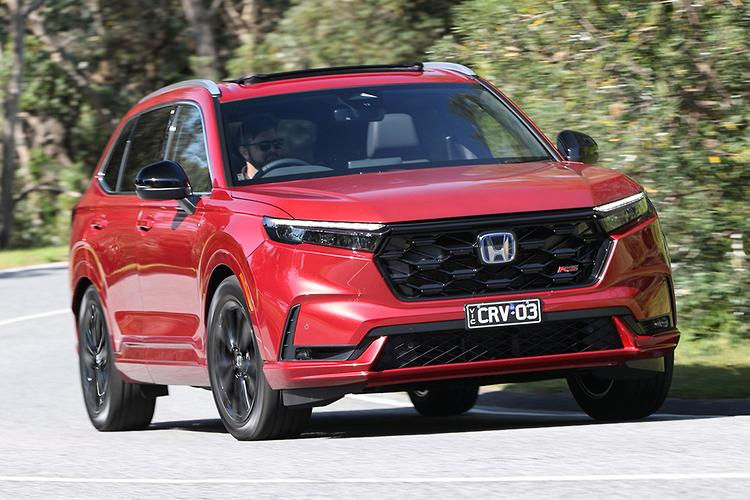
The Honda CR-V's popularity for flat-towing is attributed to its adaptable all-wheel-drive system and straightforward setup for flat-towing without alterations. Its manageable weight, spacious interior, and reliable performance make it an attractive choice for RV enthusiasts seeking a versatile towed vehicle that balances comfort and practicality.
Ford F-150:

Renowned for its towing capacity and durability, the Ford F-150 boasts a range of engine options, including powerful V8s and fuel-efficient turbocharged V6s, catering to varying towing needs. Its robust build and towing-focused features, such as integrated trailer sway control and towing packages, enhance its appeal for RVers seeking a dependable towed vehicle.
Jeep Grand Cherokee:
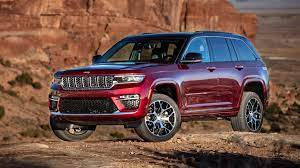
Combining comfort with towing capability, the Grand Cherokee's available four-wheel-drive system and straightforward setup for flat-towing contribute to its popularity. Its spacious interior, towing-friendly technology like rearview cameras and trailer sway control, and adaptable off-road capabilities make it a versatile choice for RV adventurers.
Chevrolet Colorado/GMC Canyon:
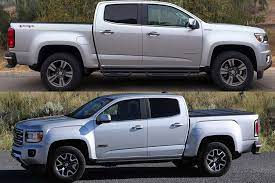
These midsize trucks offer robust towing capacities and manageable dimensions, making them appealing options for towing behind motorhomes. With available 4WD, varied engine choices, and towing-friendly features such as integrated trailer brake controllers, these trucks cater well to RVers seeking versatility and reliability.
Ram 1500:

The Ram 1500's towing capacity, smooth ride, and available four-wheel-drive make it an attractive choice for those seeking a comfortable towed vehicle. Its multiple engine options, towing technology like trailer sway control and integrated brake controllers, and ample interior space further enhance its appeal for RV enthusiasts.
Ford Ranger:
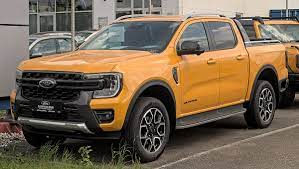
The Ford Ranger's solid towing capabilities, manageable size, and four-wheel-drive availability make it a favored choice among towable vehicles. Its sturdy build, varied trim levels offering towing packages, and user-friendly technology make it an appealing option for RVers seeking a reliable towed vehicle.
Jeep Liberty:
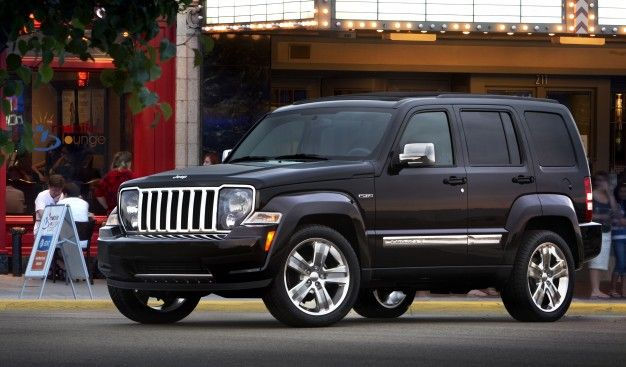
While an older model, the Jeep Liberty's compact size, available 4WD, and simple setup for flat-towing without modifications continue to make it a popular choice. Its rugged build and towing-friendly features contribute to its reliability for RV travel.
Smart Fortwo:
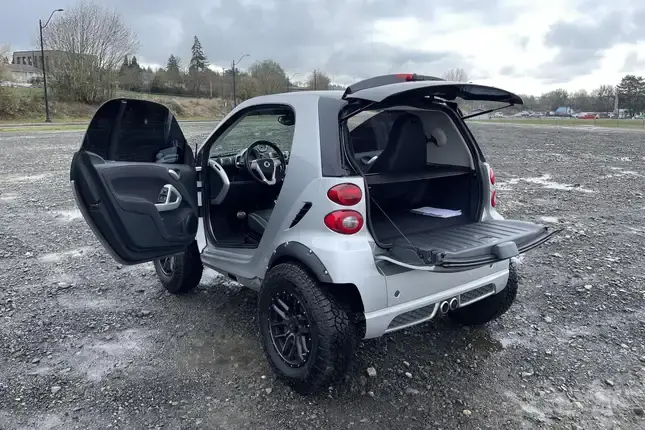
The Smart Fortwo's lightweight design, uncomplicated flat-towing setup, and compact dimensions make it an unconventional yet practical choice for RVers seeking a smaller towed vehicle. Its maneuverability and ease of use add to its appeal as the lightest car to tow behind RV.
Chevrolet Spark:
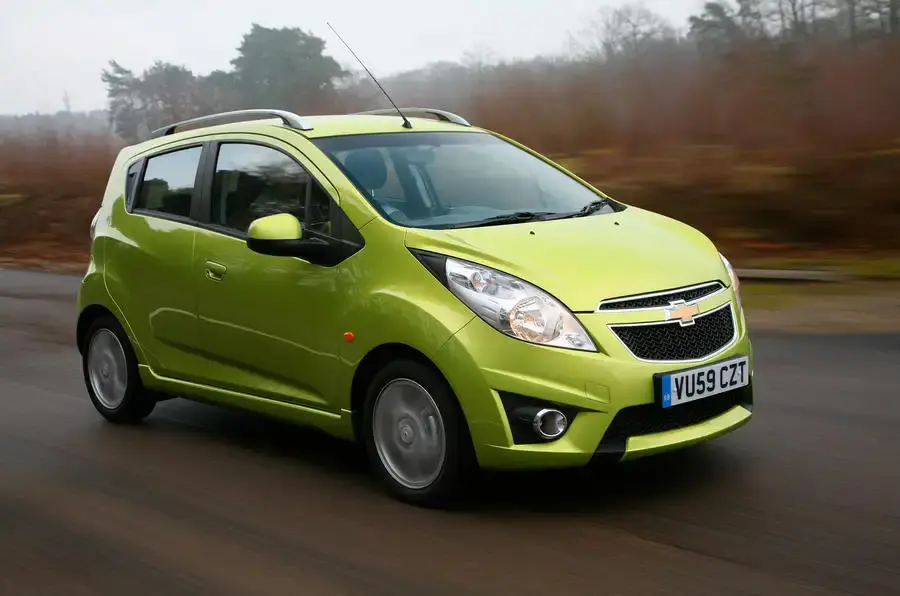
With its lightweight build, straightforward flat-towing setup, and small footprint, the Chevrolet Spark offers an efficient and hassle-free towing experience. Its compact size and fuel efficiency makes it one of the best car to flat tow behind an RV, especially for those looking for a smaller towed vehicle option that doesn't compromise on convenience.
Setting Up a Tow System in 5 Easy Steps
Now that you have a car in mind to tow behind your RV, it’s time for the final set-up. Here's a step-by-step guide on the best way to tow a car behind an RV
Step 1: Gather the Right Equipment
Before diving into the setup process, ensure you have all the essential gear ready and on hand. You'll need a compatible tow bar, baseplate or brackets specific to your towed vehicle, safety cables, wiring for brake lights and turn signals, and potentially an auxiliary braking system depending on local regulations. Verify that the equipment is compatible with both your RV and the car you plan to tow, ensuring a secure and safe connection between the two.
Step 2: Install the Baseplate or Brackets
Time to get hands-on! Install the baseplate or brackets onto your towed vehicle's frame. This crucial step provides a secure attachment point for the tow bar, allowing for a stable and safe towing experience. Follow the manufacturer's instructions meticulously during installation to ensure proper alignment and sturdy mounting, preventing any mishaps on the road.
Step 3: Connect the Tow Bar
Now comes the moment of connection! Attach the tow bar to both your RV's hitch receiver and the baseplate on the towed vehicle. Ensure the tow bar is properly aligned and locked into place, double-checking that all connections are secure before hitting the road. Consider utilizing safety cables as an added precaution to provide an extra layer of security in case of unexpected detachment.
Step 4: Wiring and Lighting Setup
Don't leave safety in the dark! Set up the wiring for brake lights and turn signals on the towed vehicle to synchronize with your RV. If you want to learn how to wire trailer lights 7 pin or how to wire a 4 pin trailer plug, the process is fairly simple. Wiring trailer lights with a 4 way to 7 way trailer adapter involves connecting the corresponding wires from the trailer to the designated pins on the connector—ground, running lights, turn signals, brake lights, backup lights, electric brake, and 12V auxiliary power. Ensure secure connections, insulate with electrical tape, and mount the connector. Refer to vehicle and trailer manuals for specific details.
Step 5: Check and Double
Check before revving up the engines and setting off, and conduct a thorough final inspection. Verify that all connections are secure, the towed vehicle's transmission (if applicable) is set to the proper towing mode, and safety measures like brakes and lights are in perfect working order. Take a short test drive to ensure everything operates as expected, giving you peace of mind as you embark on your RV adventure!
Conclusion
That’s all for our take on cars to tow behind your motorhome! It may seem like a hassle to pack an extra vehicle for the journey but trust us when we say it will make exploring easier at your destination. Not every RV can brave rugged trails, sandy plains, or bustling cobbled town streets. That’s where your towed car will come in handy. Choose a vehicle from our list above or select one that comes closest to it and get ready for a fun journey. Thanks for towing us with us till the end of this guide and happy RVing!
.png)



Great article! This really breaks down the best cars to tow behind a motorhome — super helpful if you’re trying to balance weight, space, and reliability. I’ve been doing extra research before my next trip, and checking out Bumper reviews helped me feel more confident in comparing real user experiences on different tow‑able models.
Everyone at my office seems to speak perfect business English except me. During meetings I understand everything but when it's my turn to speak I sound like a teenager instead of a professional. I use the wrong tone and informal words that don't belong in work conversations. It's holding me back from participating more and sharing my ideas confidently. I watch how my colleagues speak and try to copy them but it never sounds natural when I do it. Started looking for business online english lessons that specifically teach workplace vocabulary and formal speaking patterns. Need to sound more mature and professional